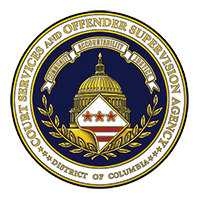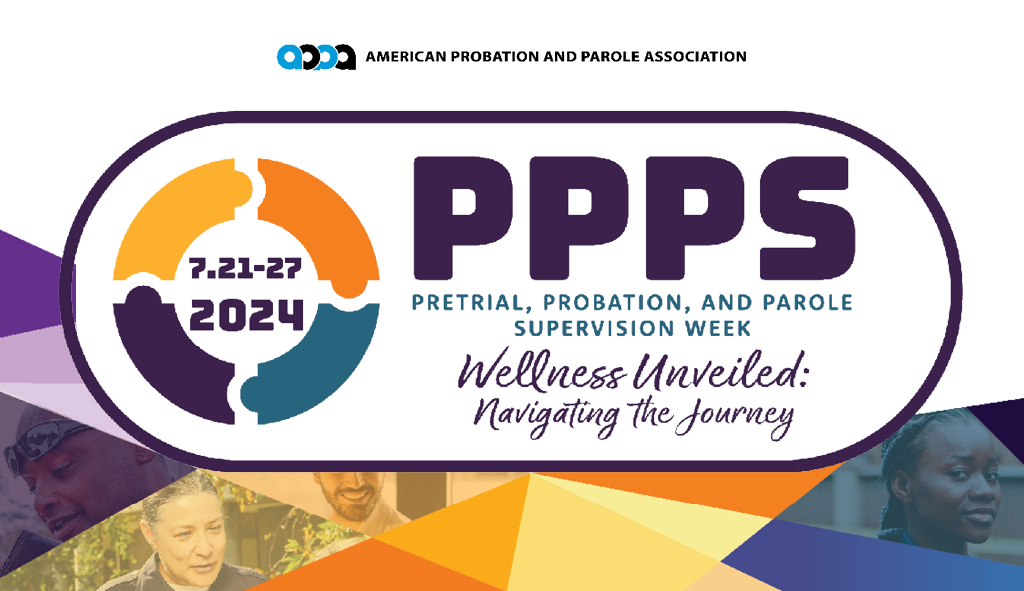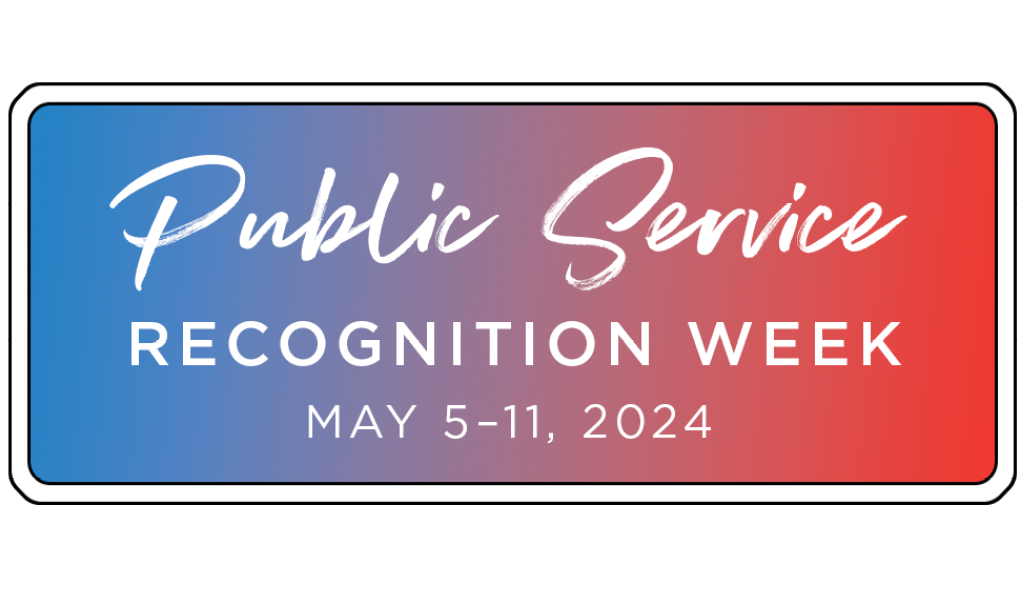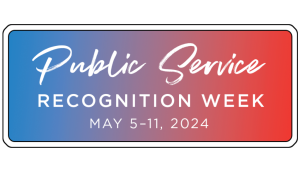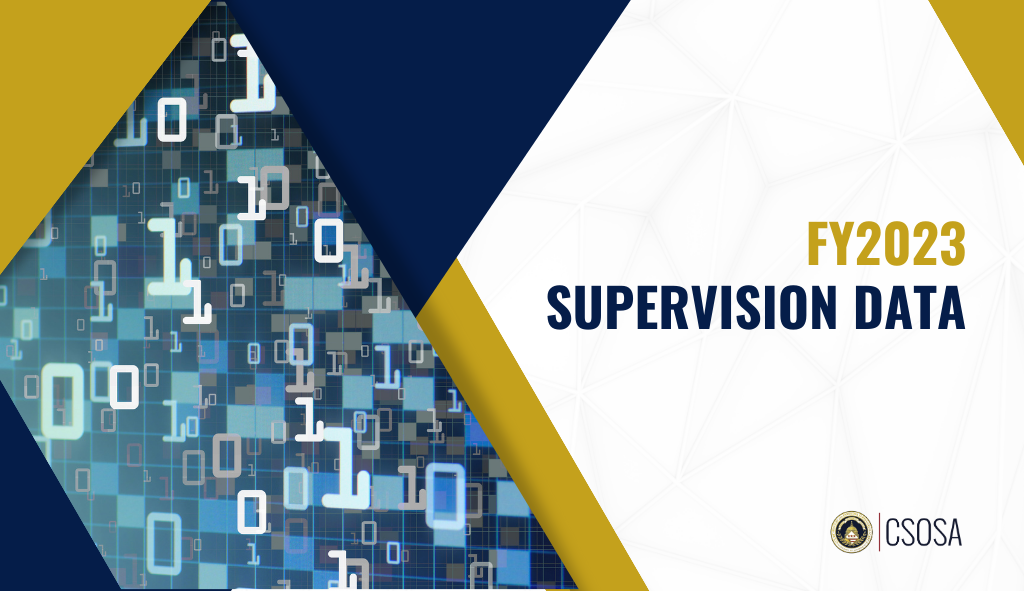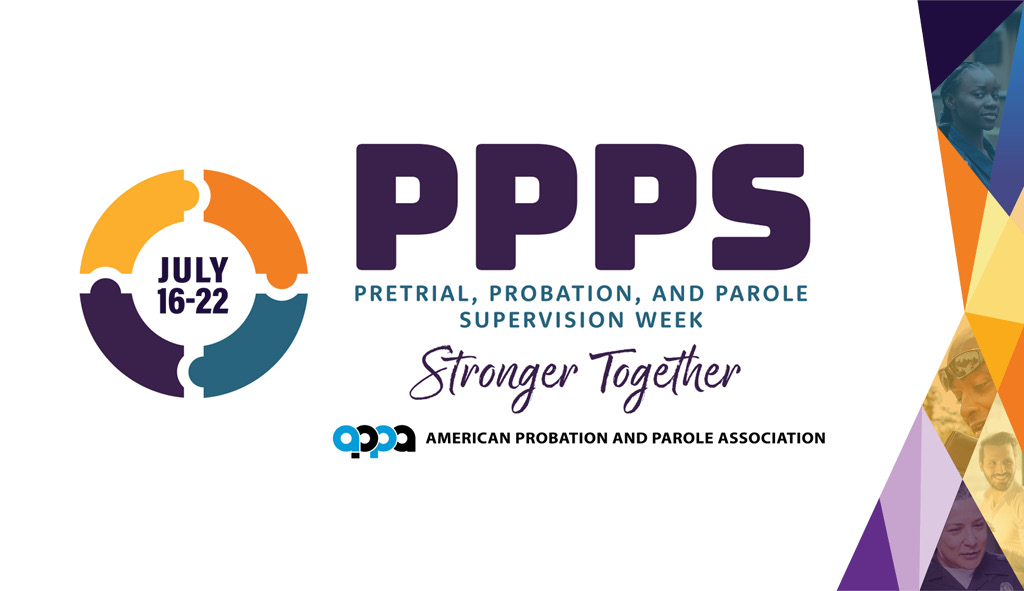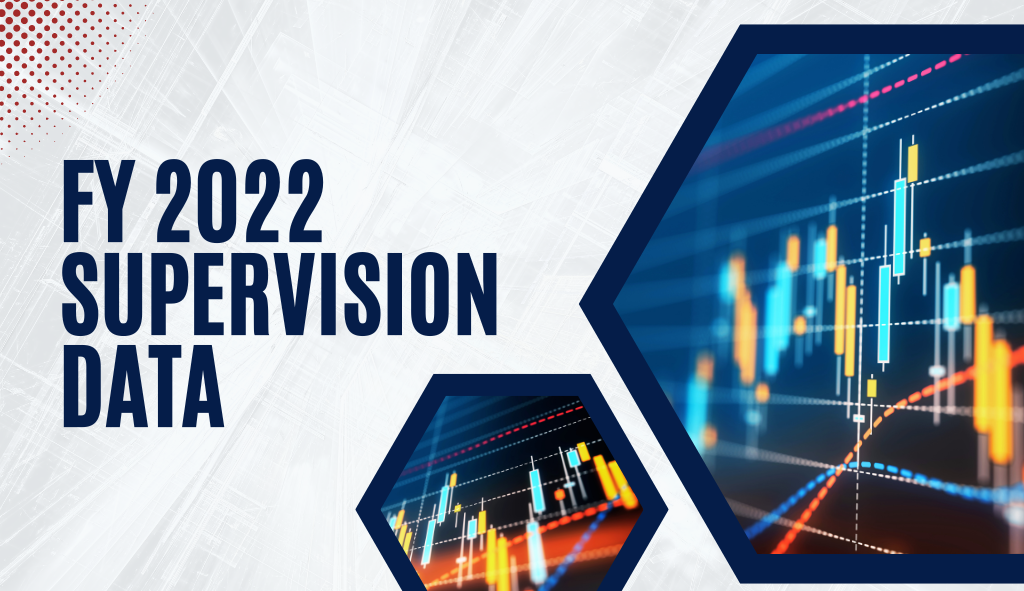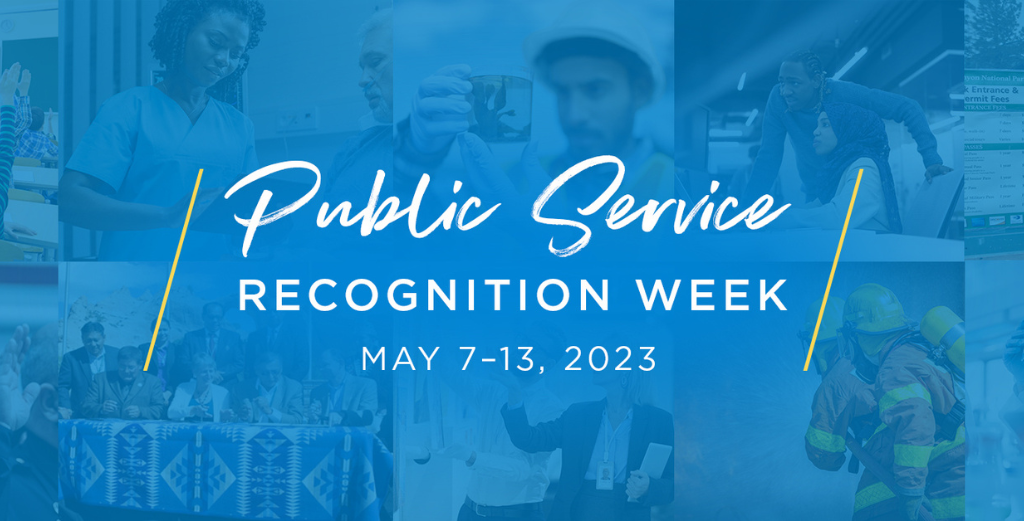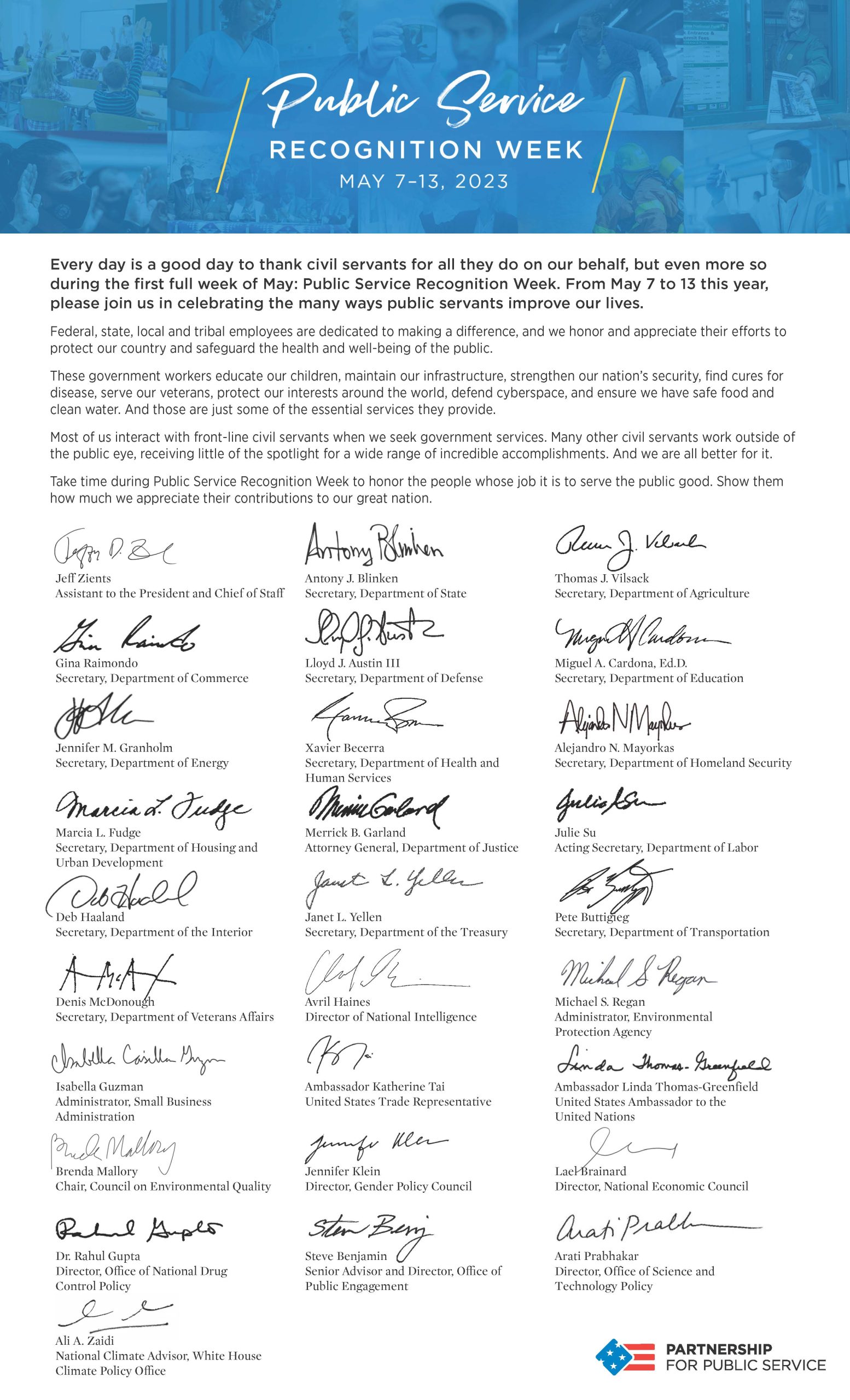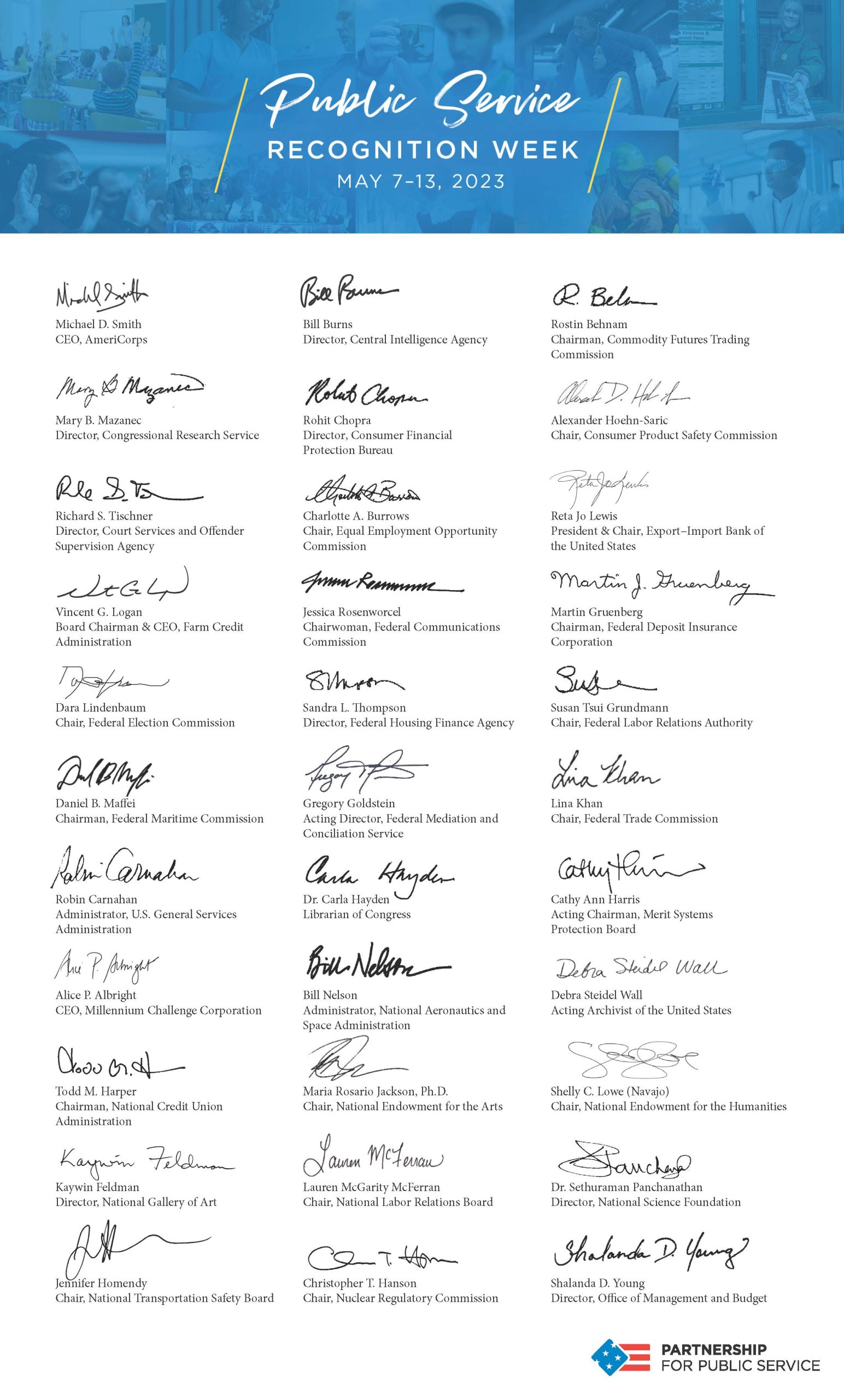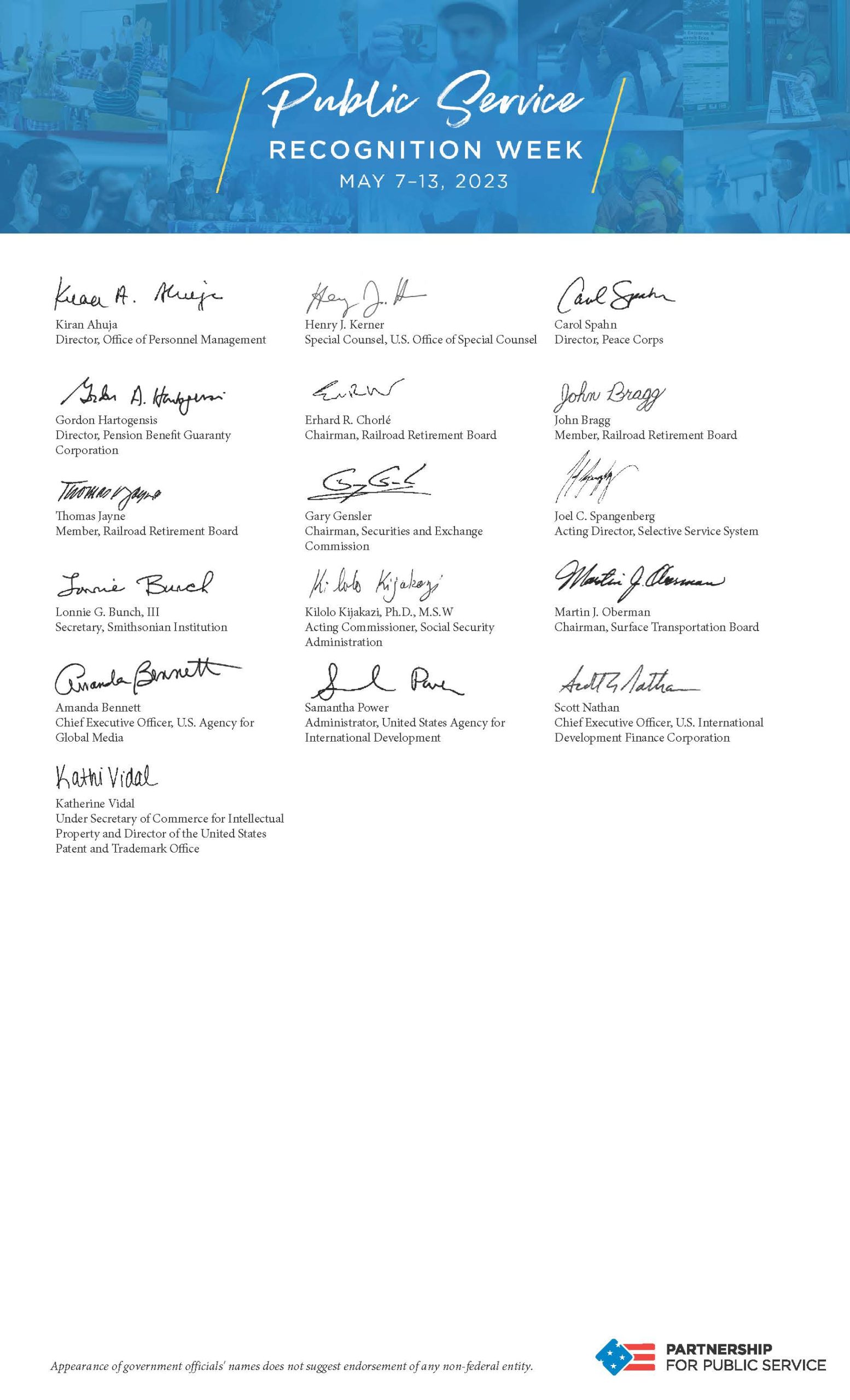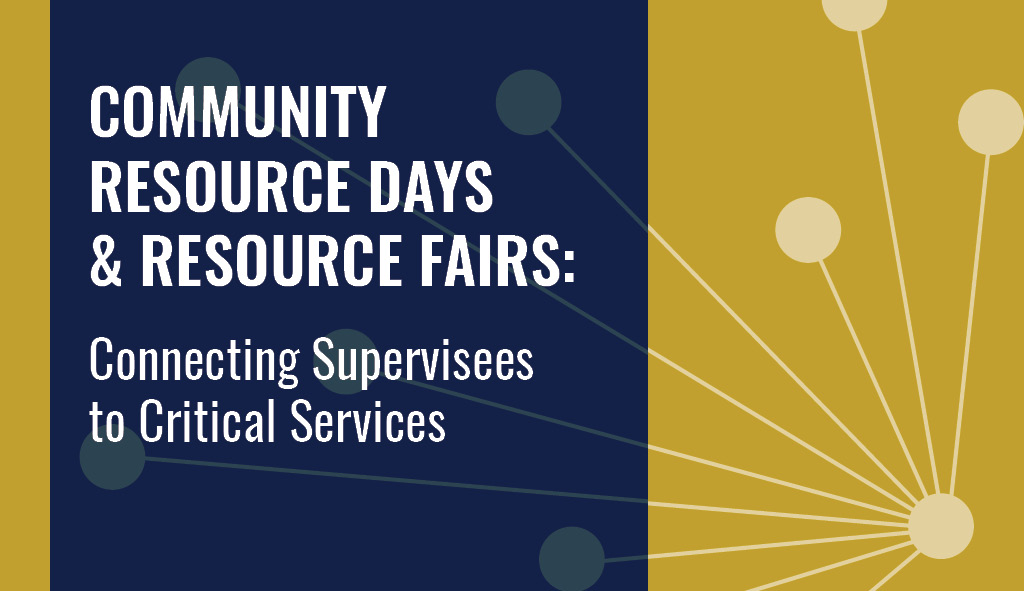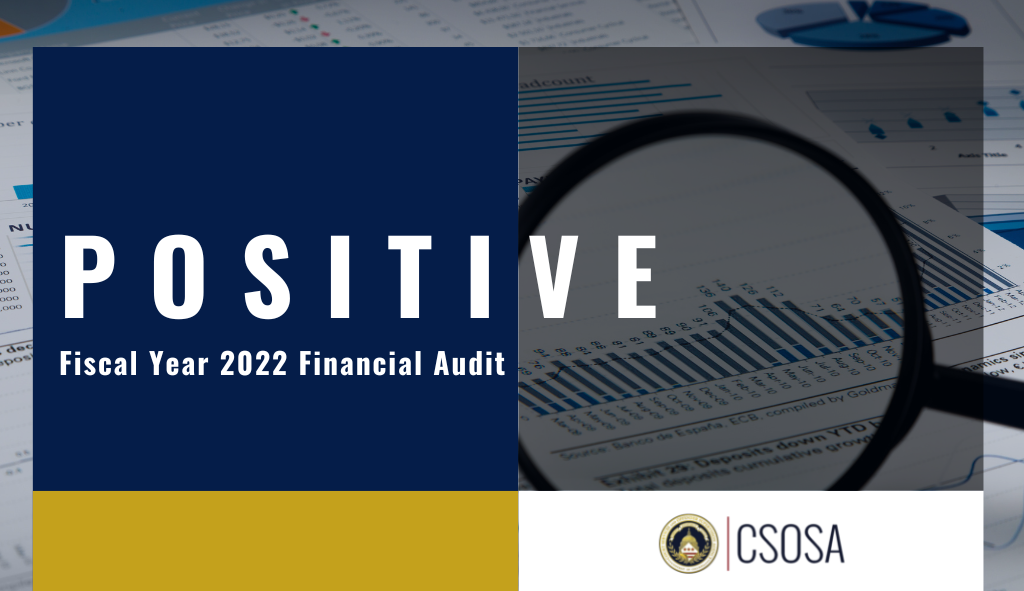CSOSA is excited to join the American Probation and Parole Association (APPA) and agencies all around the country to mark Pretrial, Probation, and Parole Supervision (PPPS) Week. Now in its 25th year, PPPS Week is celebrated annually during the third full calendar week of July. It’s an opportunity to honor the achievements of community corrections professionals around the country. This year’s PPPS Week is July 21 through 27.
This year’s theme – Wellness Unveiled: Navigating the Journey – emphasizes the importance of taking care of your mental and emotional health.
The work of a community corrections professional requires a high level of compassion and empathy. Over time, elevated emotional demands and pressures associated with difficult and challenging work can negatively impact health and wellbeing, placing workers at risk for compassion fatigue and burnout. With this year’s theme, we are reminded that taking care of others requires taking care of oneself.
In the Congressional Record, Congressperson Eleanor Holmes Norton recognized “the Nation’s community supervision professionals, who are dedicated public servants and perform many vital roles in their work with justice-involved adults and juveniles. Community supervision professionals identify opportunities and services to help justice-involved individuals contribute to society, while holding them accountable for their actions. They remain mindful of their role in protecting public safety.”
District of Columbia Mayor Muriel Bowser issued a proclamation in honor of PPPS Week, noting that “the exemplary work of community corrections professionals is an essential component of the District’s justice system and plays a vital role in making the District of Columbia safer for residents and visitors.”
“CSOSA drives significant, positive changes in the lives of the people we supervise and the communities we serve. It is challenging work.” said CSOSA Director Richard S. Tischner. “The impact we have in making the District a safer place to live, work, and visit is only possible through the perseverance, commitment, and dedication of our staff.”
CSOSA salutes our dedicated staff in the Office of Community Supervision & Intervention Services and Office of Behavioral Interventions, and that of the Pretrial Services Agency for the District of Columbia (PSA). This PPPS Week and beyond we hope all community corrections professionals will prioritize improving wellness, building resiliency, and finding balance.
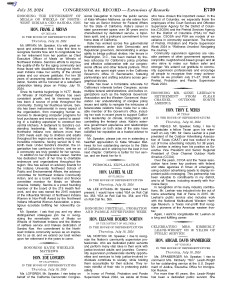
Click the image above to view the Congressional Record entry.
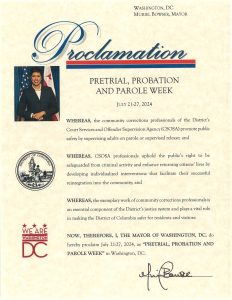
Click the image above to view the Mayoral Proclamation.

